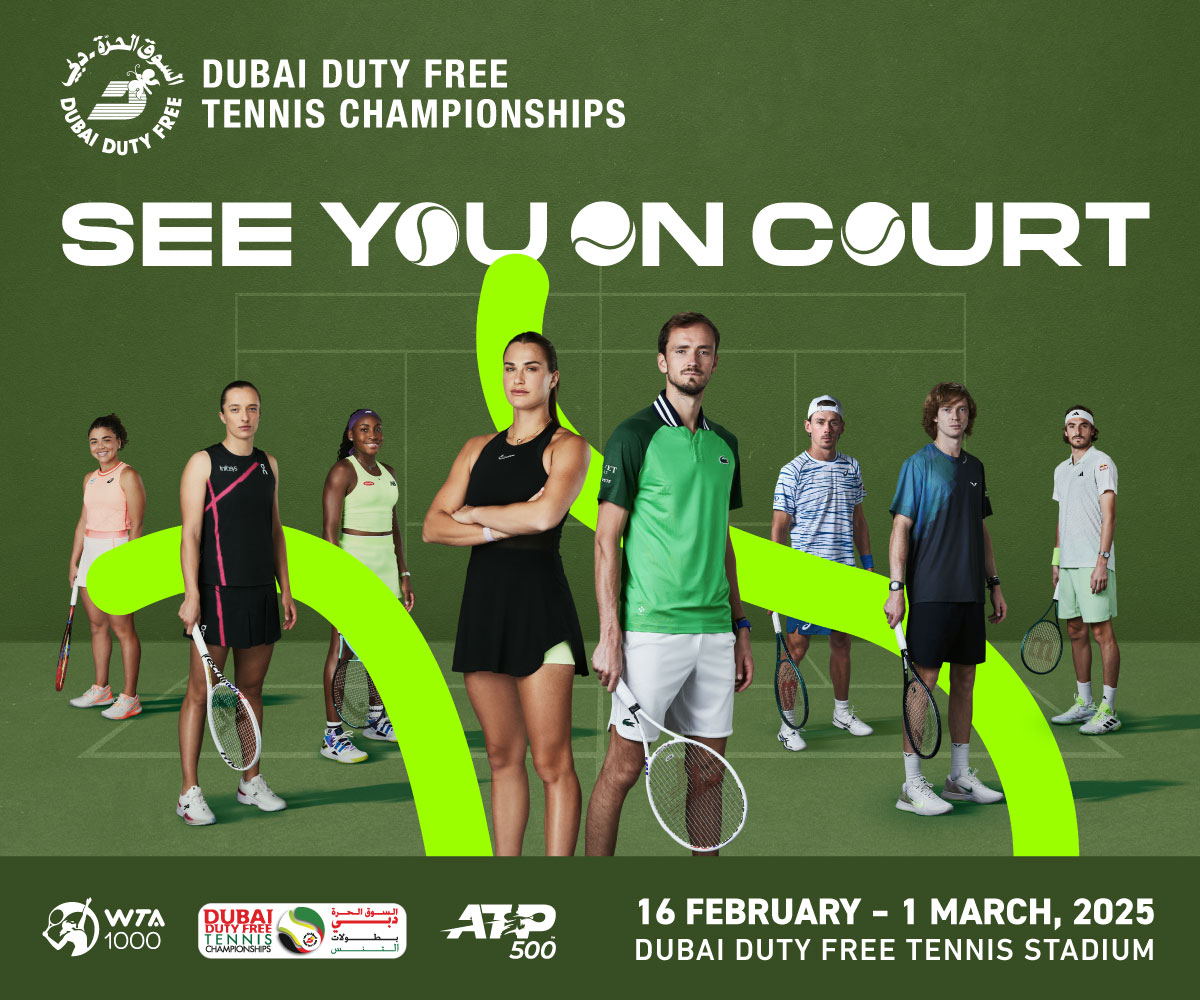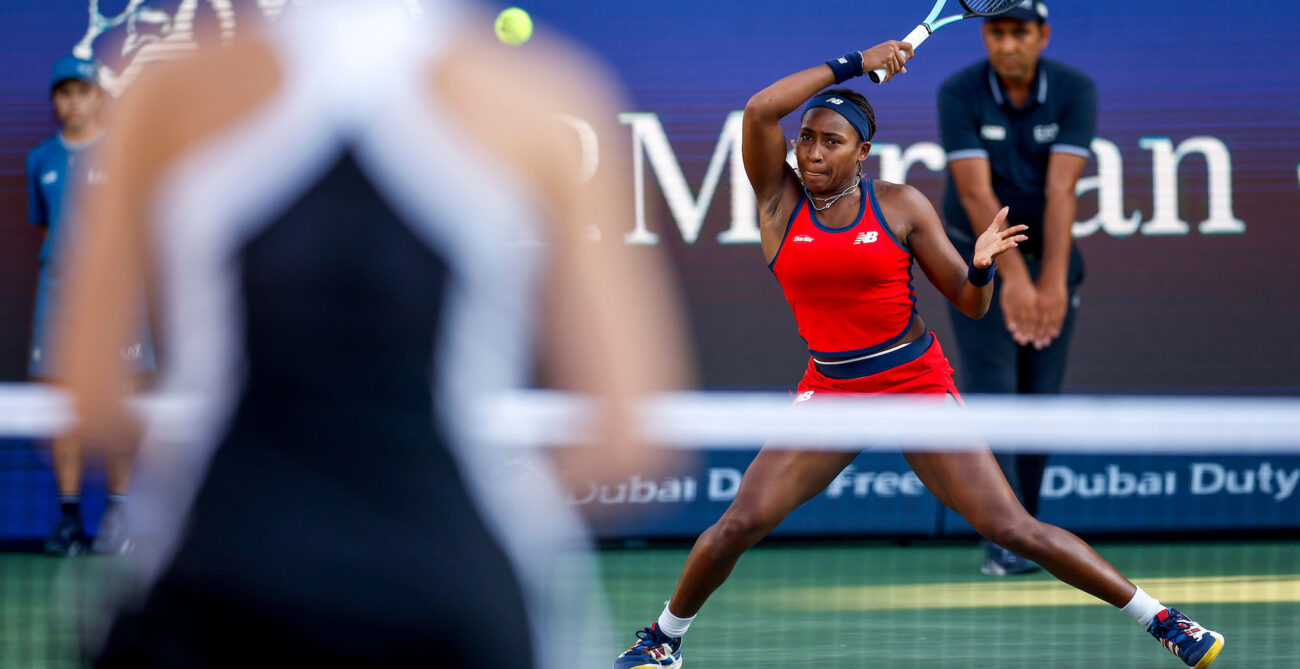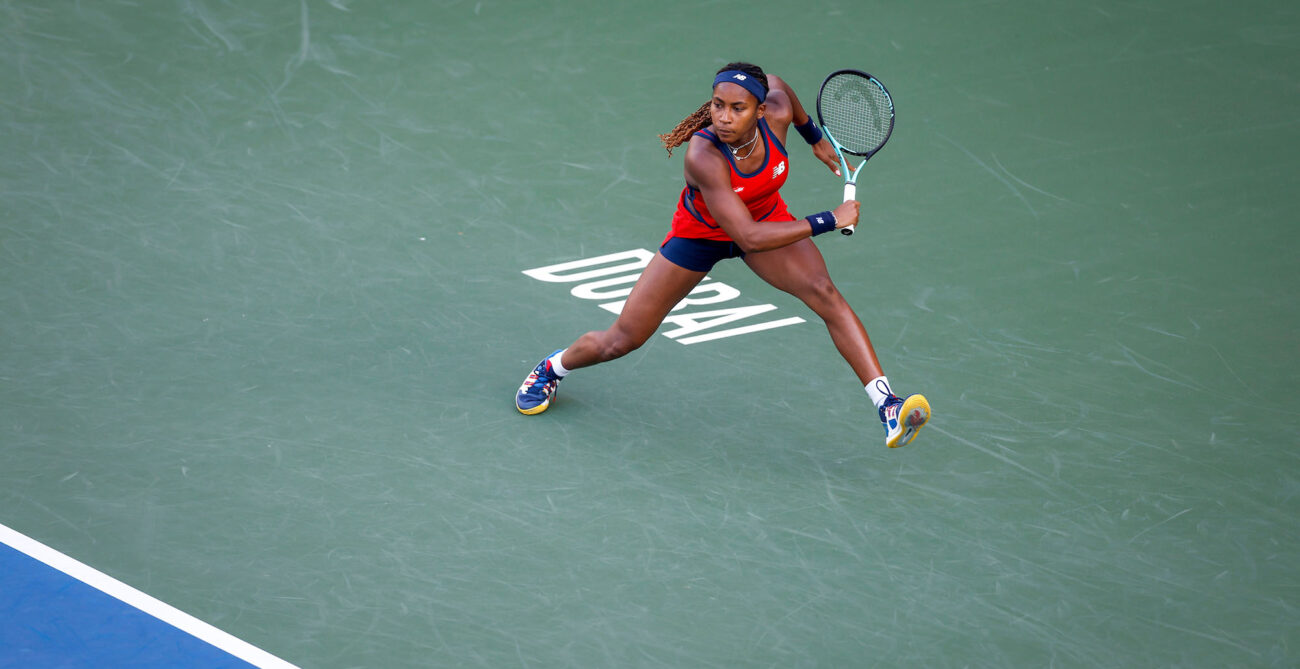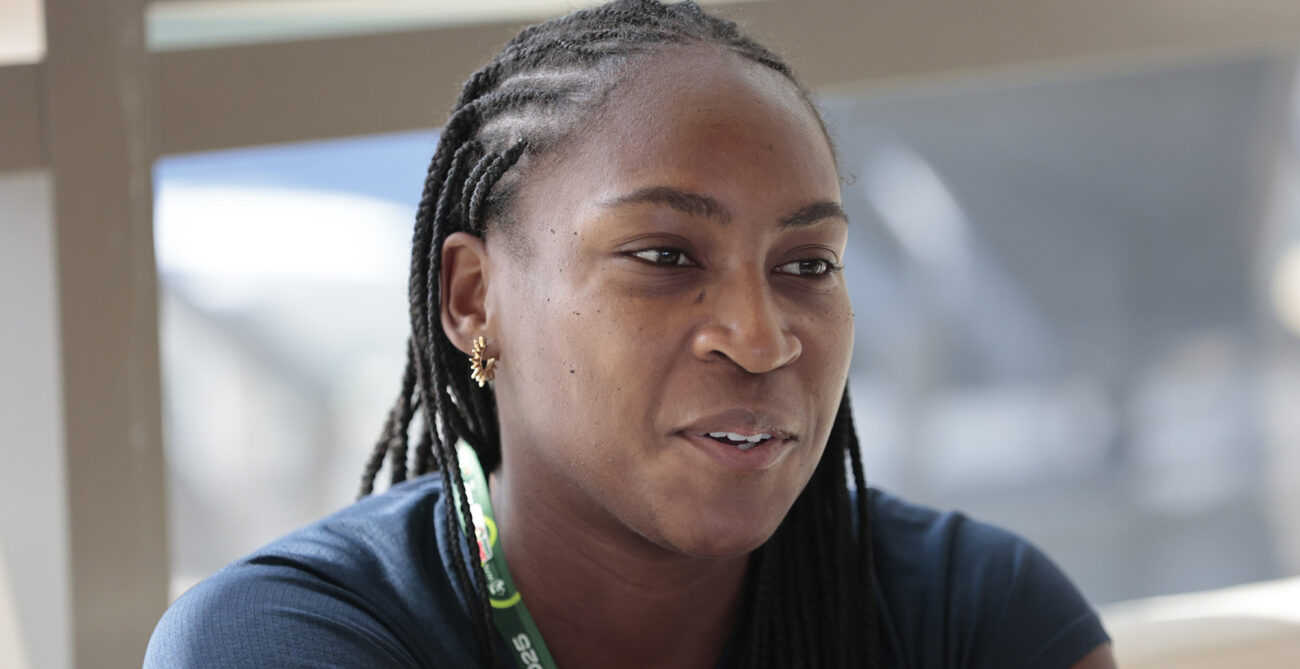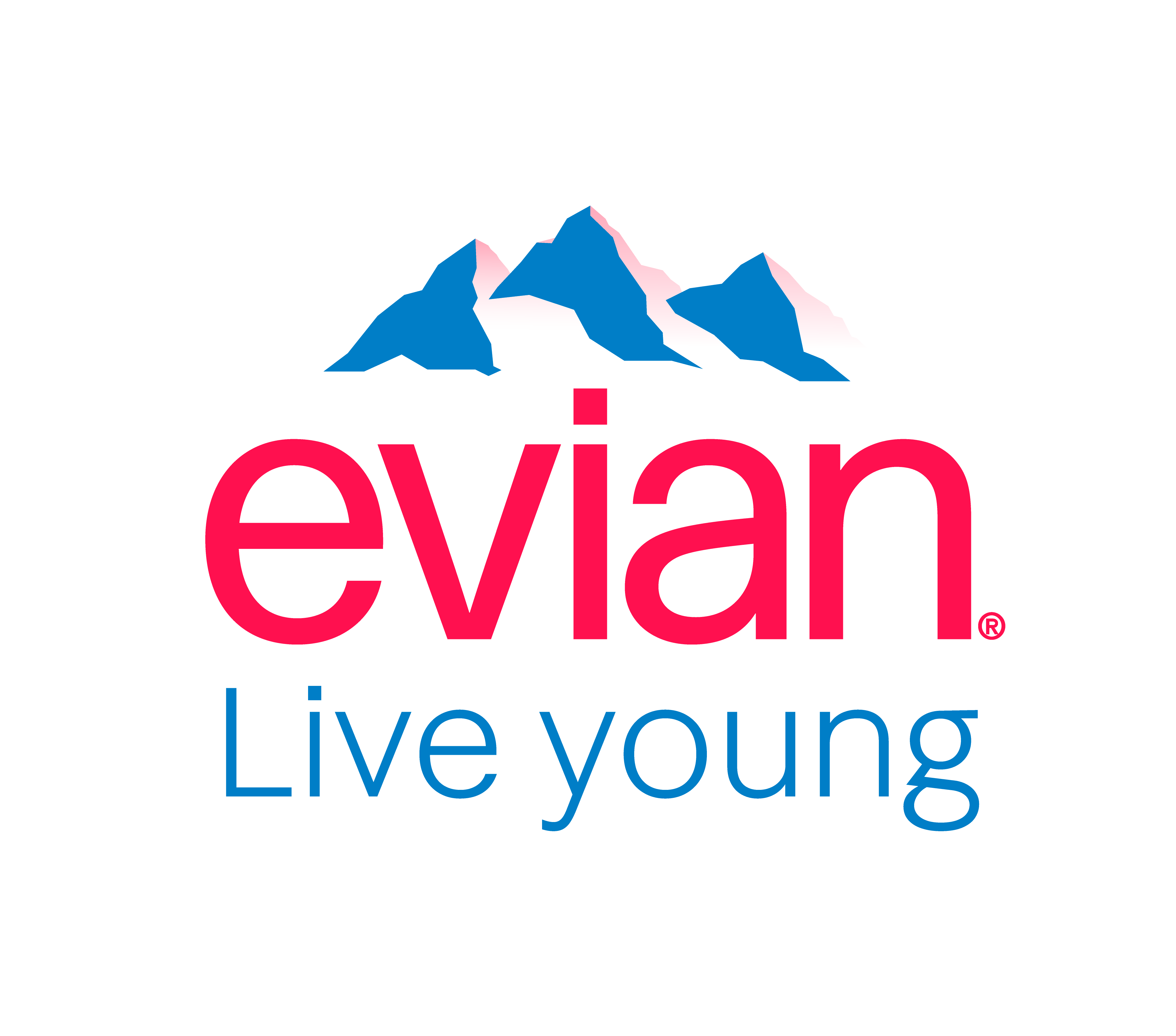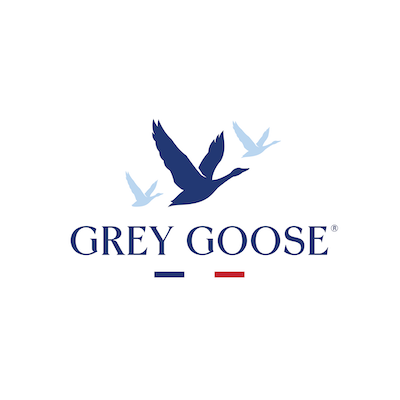Coco Gauff – Press Conference
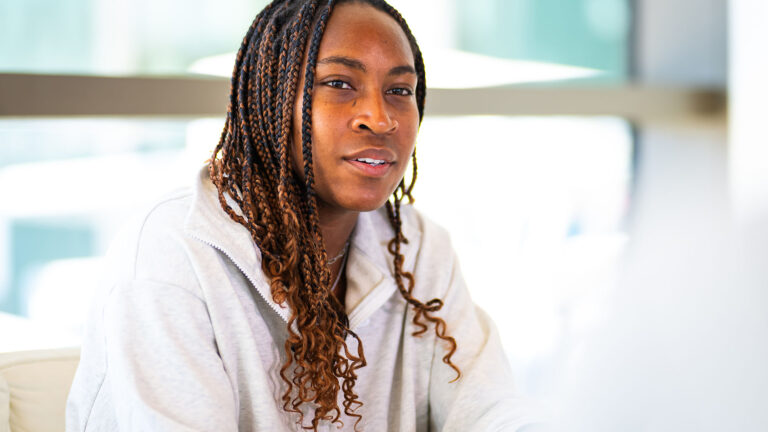
Coco Gauff at media day.
THE MODERATOR: Welcome to Dubai. You’ve been here a few days. How is your preparation so far?
COCO GAUFF: Yeah, so far, so good. I’m looking forward to hopefully having a better week here.
Yeah, that’s it (smiling).
THE MODERATOR: Questions, please.
Q. It’s been a while, probably since grass season last year, where you kind of come in kind of twiddling your thumbs for a little bit waiting for the next tournament.
COCO GAUFF: Yeah.
Q. I’m curious, how long did it take you to get over that loss and look ahead to Dubai?
COCO GAUFF: Yeah, it didn’t take me too long. It was just a bad day at the office. I’m not going to let it define how the rest of this week will go, so yeah…
Q. You were a semifinalist here last year. Sometimes people struggle with the conditions here. Your fourth year here. How do you manage the tournament? How do you feel it suits your game?
COCO GAUFF: Yeah, it’s definitely weird conditions. I think the court is faster than it was last year. Other than that, I mean, sometimes it gets windy here, but it hasn’t been incredibly windy like it is in Florida right now. Other than that, I think it’s pretty much the same.
Yeah, even though they’re both kind of in the desert, it’s different from Doha. Especially playing earlier in the day, where Doha was mostly at night. That’s where the conditions are hard to transition to.
Q. You get to a point now where you’re going to most of the big events, then you have the one off week in Doha where it didn’t go your way. Is it jarring for you? Is it like you don’t take it for granted, this can happen?
COCO GAUFF: It definitely can be jarring, not necessarily ’cause I lost like first or opening match just ’cause I didn’t play that well that match. Maybe if I played better and still lost, it would be different.
Yeah, at the end of the day I played 12 matches this year, and I would say that was like the first really bad loss that I had in the semifinals. I didn’t play necessarily bad the whole time. I think it’s just keeping that in perspective.
Q. Ever since the Grand Slam win, is it about taking one match at a time for you still or is it about looking at the larger picture, how you define your own legacy? Are you thinking about the scale in that sense?
COCO GAUFF: No. I think it’s just one match at a time right now. Obviously I want to do great in tennis, but I have a lot of years left in this game, so I think I can’t quite look at that. I feel like that’s something people look at at the end of their careers.
Q. I’ve been trying to get the view from the players about the changes this year, adapting to tournaments and things like that. Some players are really not liking it. Sloane said it’s one of those things where you have to wait and see. How do you see it? What’s the biggest difference or the biggest challenge with the changes?
COCO GAUFF: At the mandatory events?
Q. Yes.
COCO GAUFF: Definitely changes your schedule a little bit. Like for me, I feel like I’m always adjusting to tour life, playing more tournaments. When I was 18 and under, I had the restrictions. Technically last year, the year before last year, was my first full year. I’m still, like, learning the whole mandatory situation.
It hasn’t changed the way I guess I approach it, except maybe after Australia I was thinking maybe not playing Doha. Since it was a 1000, I decided to play. I don’t base my results off of that decision.
It’s definitely different. I think I’m on the fence of just like waiting and seeing how it goes. There’s already been a couple pullouts this year, especially like this week in Dubai. So it will be interesting.
Me personally, I think maybe missing one or two should be allowed with the way our sport is. Also at the same time I get the business side of it and media side of it, how to promote our sport. You want the best players there.
It’s just about adapting. I think at the end of the day players should just make decisions what’s best for them and not think about ranking or any of that. At the end of the day it’s just up to the individual person to decide what’s important to them and adapt from there.
Q. On the back of a packed schedule and mandatory tournaments, how do you as an athlete keep yourself mentally fit, apart from the physical side?
COCO GAUFF: I think for me, I notice if I do a lot – not a lot – but for example I lost in Doha, the next day I did a desert excursion, which is something that I’ve would have never done in the past because when I lose, I usually (indiscernible) on it too long. I think that can be mentally tolling. You do lose a lot. You lose more than you win, especially in tennis.
For me, I’ve been just trying to enjoy the other aspects in life other than that. Just listening to your body, listening to your mind. If you feel like you need to miss a tournament, miss it. For me, I’ll always try to play as much as I can with being healthy.
Q. I’d like to know if you have a special preparation to keep on top of the rankings.
COCO GAUFF: Not really anything special. Yeah, I don’t really have a special routine or anything. For me it’s just every week trying to see what are the areas I can improve on, how I can transfer that into the next week. I’m really trying to use these tournaments just to continue to improve.
I know 1000s mean a lot. But I think for me, I need to try the play the way that will make me successful for the long-term.
Q. I’m curious if you were following the All-Star Game at all over the weekend, and your thoughts on of the Steph and Sabrina, what they did the other night, all the discussion surrounding that. Do you have any reaction to it?
COCO GAUFF: I didn’t watch the actual All-Star Game, but I saw all the pre stuff, the skills challenges and all that.
I think the Sabrina and Steph competition was great. I think most people were rooting for Sabrina. The fact that I think what she did was incredible, especially also shooting from the NBA line. There’s a lot of people saying that she should have shot from the WNBA line, that that would have mattered.
At the end of the day if you watch her play, watch her or Caitlin Clark play, they shoot from way past the NBA range quite often, so I think that debate was silly. She lost. Steph is definitely the greatest three-point shooter ever.
The fact is that Damian Lillard, I am pretty sure he scored 26 in his three-point contest, and she had 26, so she would have tied him. So I think that argument is silly. It’s just a competition. She just happened to lose.
I just hope they continue to do this. It just humbles a lot of men in the world. I really like that. Especially basketball, that type of competition, it’s something physicality doesn’t always matter. I think that’s what makes it cool.
I heard next year they hinted at maybe bringing somebody else, doing a two-person type competition. I would be really excited to see that.
Q. On the point you made about humbling a certain type of men. The argument comes up in sport about equal pay among athletes. How do you see bringing that gap closer, making sure both men and women are paid equal prize money?
COCO GAUFF: Yeah, for me I think the biggest thing in that most sports in the world, people watch the men’s game more than the women’s. I think we continue to bring fans. The problem is also we have to market our women’s sports better, market us better.
I think the past couple years I feel like the marketing for women’s sports has been invested more in, and therefore there’s been more watch-ability, people watching. I think if we continue to invest in women’s sports, then it will profit almost the same as the men, garner equal pay.
I’m grateful for us. At least on most tournaments, some tournaments on the tour, the Grand Slams obviously, we have equal pay. Hopefully tennis can be the leader of that and fiddle down into other sports, as well.
Q. Back to the All-Star Game. If there was a skills challenge for tennis, what do you think are some of the skills that can create a competition a bit similar to what they do?
COCO GAUFF: Yeah, I mean, there’s obviously the serve targets. The serve, I would have loved to see somebody maybe like Serena and Nick maybe go toe to toe in that serve challenge.
What else can you do? There’s also like the dropshot one. Ons and Carlos would be a cool matchup against that. There could be maybe a consistency challenge. Maybe even, like, I don’t know… Probably I think those are the three things off the top of my head.
Actually when we practice with guys, a lot of women play baseline games with them. We still win the games sometimes. I played with Chris a couple times. I played with Frances last year in Indian Wells. I win a couple times; I don’t.
Baseline games usually, depending on the guy’s serve, some of them don’t have as good of serves so we can return it (laughter), but baseline games are a good, common ground for us to play.
It will be quite interesting. I would really love to see that, Ons and Carlos. Maybe somebody can go toe to toe with Nick and Serena. Serena doesn’t play anymore, but I think her serve was the best. That would have been interesting to see.
FastScripts Transcript by ASAP Sports
